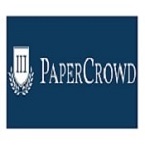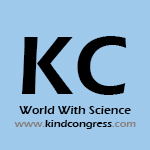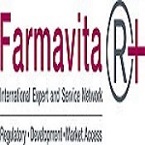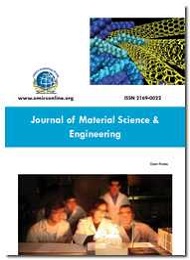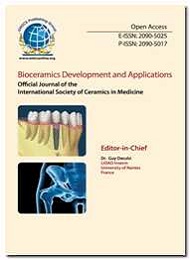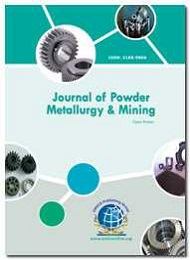Theme: “Synthesis and application of functional materials to Science and Engineeringâ€.
Materials Chemistry 2023
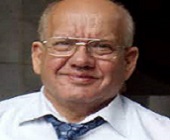
Welcome Message
by
Dr. Vitaly Petrovsky
Dear Distinguished Scholars, Engineers, and Colleagues!
It is my great honour and pleasure as a Committee Member to invite you to join with a contribution to 21st International Conference and Exhibition on Materials Scienece and Chemistry, March 13-14, 2023, Frankfurt, Germany.
Specialty of the conference aims to bring together scientists, researchers and industrialists from all over to world on a common platform to discuss and share recent advances in Materials, Chemistry, and Physics.
The Conference will include Plenary and Keynote Speeches and Invited Talks which will be given by Distinguished Scholars and Experts from academic institutions and industry as oral presentation and poster presentations by young junior participants.
Devoted to the rapid development of Materials Science and Chemistry, this conference will provide excellent opportunity to meet distinguished scholars and experts and to exchange new ideas and application experiences, to establish research relations and collaborations for future research and projects. The conference has a wide variety of Materials Sicence and Chemistry Materials Chemistry, Nanotechnology and Nanomaterials to the Polymer Chemistry and Materials Sciences and Engineering.
International scientific activities are big scientific platforms for the scientists, academicians, and young academicians from all over the world, to interact and communicate with each other.
I believe that Materials Chemistry 2023 Conference will provide this opportunity for delegates from different cultures and countries. Also this conference will be performed successfully, in favour of the qualified scholars and experts and with their valuable presentation will be very beneficial for young researchers by encouraging them and improving their confidence of presenting research in an international platform.
I am pleased to invite prospective scholars and academicians, to submit their original contributions to this important conference, where you are sure to have a meaningful experience with scholars and experts from different cultures and different countries, from all around the World.
Dr. Vitaly Petrovsky, Ph. D.,
Full professor of Materials Science,
Frantsevich Institute for Problems in Materials Science,
Ukraine
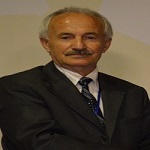
Welcome Message
by
Dr. Osman Adiguzel
Dear Distinguished Scholars, Engineers, and Colleagues!
It gives me great honour and pleasure as a Organizing Committee Member to invite you to join with a contribution to 21st International Conference and Exhibition on Materials Science and Chemistry, to be held in Frankfurt, Germany during March 13-14, 2023.
The Materials Chemistry 2023 will serve as platform or the interaction between experts in the area of Materials Science and Chemistry from Smart Material science, Tissue polymeric Materials, and Materials Synthesis and Characterization. The main theme of the conference is designated as "Synthesis and application of functionall materials to science and Engineering", which opens the doors for many researchers, scientists, scholars, young students and industry representatives in these exciting areas. This Conference will provide Excellent opportunity to meet distinguished scholars and experts and to exchange new ideas and application experiences, to establish research relations and collaborations for future research and projects.
I am pleased to invite prospective authors to submit their original contributions to this important conference.
Dr. Osman Adiguel, Ph. D.,
Retired Professor of Physics,
Firat University,
Elazig, Turkey
Chemistry Conferences welcome chemical professionals, researchers, professors, scientific communities, delegates, students, business professionals and executives from all over the world to attend the “21st International Conference and Exhibition on Materials Science and Chemistry” which is to be held during March 13-14, 2023 at Frankfurt, Germany which includes prompt Keynote presentations, Oral talks, Poster presentations and Exhibitions.
Materials Chemistry 2023 which is the primordial chemistry conferences serves as a global platform to discuss and learn about Material Science, Material Engineering, pharmaceutical materials chemistry, biomimetic chemistry, chemical syntheses, characterization and processing of novel materials, nanochemistry, applied materials chemistry, super conducting concepts, polymer chemistry, inorganic materials chemistry, organic materials chemistry, analytical materials chemistry, physical materials chemistry and other basic principles involved in Materials Chemistry.
In the light of this theme, the conference series aims to provide a forum for international researchers from various areas of chemistry, pharmacy, materials science and chemical engineering by providing a platform for critical analysis of new designing, and to share latest cutting-edge research findings and results about all aspects of Materials Chemistry. The current meeting of chemistry conferences will be a multinational gathering and present major areas such as surface enhancement, nanotechnology, polymer science and overall applications.
Track 1: Smart Material Science
Smart Materials have a wide range of applications in the field of engineering. They are used in Marine, Aerospace, Compu​ter and electronic devices, Buildings and Structures, Medical Equipment Applications and many more. Smart Materials are also used in many intelligent clothing technologies, wearable technologies which involve the use of e-textiles. It is used in the structures of civil Engineering and Architecture which disclose and uncovers the ancient and spectacular architectures by human or modify the earth’s geography. The recent research in different areas such as civil engineering, structural engineering and archaeological technology is going on with different principles of environmental, geotechnical, structural and construction engineering.
Related Conferences:
4th European Food Chemistry Congress June 19-20, 2023 Toronto, Canada; 19th European Organic Chemistry Congress June 19-20, 2023 Rome, Italy; 22nd International Conference on Medicinal and Pharmaceutical Chemistry March 21-22, 2023 Vancouver, Canada; International Conference on Biosimilars & Pharmaceuticals June 23-24, 2023 Paris, France; 15th International Conference & Expo on Chromatography Techniques January 30-31, 2023 Barcelona, Spain.
Track 2: Chemical Engineering
Chemical engineering is all about changing raw materials into useful products such as clothes, food and drink, and energy. Chemical engineers focus on processes and products. They develop and design processes to create products. In addition to develop useful materials, modern chemical engineering is also concerned with pioneering valuable new materials and new methods such as nanotechnology, fuel cells and biomedical engineering.
Related Conferences:
4th European Food Chemistry Congress June 19-20, 2023 Toronto, Canada; 19th European Organic Chemistry Congress June 19-20, 2023 Rome, Italy; 22nd International Conference on Medicinal and Pharmaceutical Chemistry March 21-22, 2023 Vancouver, Canada; International Conference on Biosimilars & Pharmaceuticals June 23-24, 2023 Paris, France; 15th International Conference & Expo on Chromatography Techniques January 30-31, 2023 Barcelona, Spain.
Track 3: Industrial applications of crystallization
Crystallization is used at some stage in nearly all process industries as a method of production, purification or recovery of solid materials. Development of crystallization processes represents a complex and challenging issue, requiring simultaneous control of various product properties, including purity, crystal size and shape, and molecular level solid structure. Crystallization is defined as a process by which a chemical is converted from a liquid solution into a solid crystalline state.
Related Conferences:
4th European Food Chemistry Congress June 19-20, 2023 Toronto, Canada; 19th European Organic Chemistry Congress June 19-20, 2023 Rome, Italy; 22nd International Conference on Medicinal and Pharmaceutical Chemistry March 21-22, 2023 Vancouver, Canada; International Conference on Biosimilars & Pharmaceuticals June 23-24, 2023 Paris, France; 15th International Conference & Expo on Chromatography Techniques January 30-31, 2023 Barcelona, Spain.
Track 4: Carbon Nanostructures and Graphene
Carbon nanoparticles, nanotubes and nanodiamonds, are considered as promising building blocks for the construction of novel nanomaterials for emerging industrial technologies. Nanocomposite carbon-based substrates are a large group of materials promising for medicine and various biotechnologies, particularly for coating biomaterials designed for hard tissue implantation. Graphite is one of the most common allotropes of carbon, and the most stable form of carbon under standard conditions. Nanotechnology has gained much attention in research to develop new carbon-based materials with unique properties.
Related Conferences:
4th European Food Chemistry Congress June 19-20, 2023 Toronto, Canada; 19th European Organic Chemistry Congress June 19-20, 2023 Rome, Italy; 22nd International Conference on Medicinal and Pharmaceutical Chemistry March 21-22, 2023 Vancouver, Canada; International Conference on Biosimilars & Pharmaceuticals June 23-24, 2023 Paris, France; 15th International Conference & Expo on Chromatography Techniques January 30-31, 2023 Barcelona, Spain.
Track 5: Tissue Engineering
Tissue engineering is the use of a combination of cells, engineering, and materials methods, and suitable biochemical and physicochemical factors to improve or replace biological tissues. Tissue engineering evolved from the field of biomaterials development and refers to the practice of combining scaffolds, cells, and biologically active molecules into functional tissues. Nanocomposites are used as three-dimensional nano-fibril structures called scaffolds that function as biological media to support cell proliferation and differentiation in regenerative medicine.
Related Conferences:
4th European Food Chemistry Congress June 19-20, 2023 Toronto, Canada; 19th European Organic Chemistry Congress June 19-20, 2023 Rome, Italy; 22nd International Conference on Medicinal and Pharmaceutical Chemistry March 21-22, 2023 Vancouver, Canada; International Conference on Biosimilars & Pharmaceuticals June 23-24, 2023 Paris, France; 15th International Conference & Expo on Chromatography Techniques January 30-31, 2023 Barcelona, Spain.
Track 6: Nano pharmaceuticals
Nano pharmaceuticals offer the ability to detect diseases at much earlier stages and the diagnostic applications could build upon conventional procedures using nanoparticles. Nano pharmaceuticals represent an emerging field where the sizes of the drug particle or a therapeutic delivery system work at the nanoscale. Nano pharmaceutical reduces the cost of drug discovery, design & development and enhances the drug delivery process. This results in the improved Research & Development success rate which enables faster introduction of new, cost-effective products to the marketplace.
Related Conferences:
4th European Food Chemistry Congress June 19-20, 2023 Toronto, Canada; 19th European Organic Chemistry Congress June 19-20, 2023 Rome, Italy; 22nd International Conference on Medicinal and Pharmaceutical Chemistry March 21-22, 2023 Vancouver, Canada; International Conference on Biosimilars & Pharmaceuticals June 23-24, 2023 Paris, France; 15th International Conference & Expo on Chromatography Techniques January 30-31, 2023 Barcelona, Spain.
Track 7: Nanodentistry
A range of synthetic nanoparticles such as hydroxyapatite, bioglass, titanium, zirconia, and silver nanoparticles are proposed for dental restoration. Reconstructive dental nanorobots are able to selectively and precisely block dentinal tubules, offering a quick and permanent cure. These nanorobots travel toward the dental pulp via the dentinal tubules. Nanodentistry has evolved as a new science of nanotechnology that helps in diagnosing, treating, preventing oral and dental disease, and improving dental health by using nanomaterials. The major field of application of microscopy and nanotechnology to dentistry is in the characterization and fabrication of dental restorative composites, both in surface morphology and elastic properties.
Related Conferences:
4th European Food Chemistry Congress June 19-20, 2023 Toronto, Canada; 19th European Organic Chemistry Congress June 19-20, 2023 Rome, Italy; 22nd International Conference on Medicinal and Pharmaceutical Chemistry March 21-22, 2023 Vancouver, Canada; International Conference on Biosimilars & Pharmaceuticals June 23-24, 2023 Paris, France; 15th International Conference & Expo on Chromatography Techniques January 30-31, 2023 Barcelona, Spain.
Track 8: Solid-State Chemistry and Physics
A solid is a material in the solid state. Solid state chemistry is the branch of chemistry that deals with the representation of the structure, properties and applications, for example in mineralogy and crystallography, metallurgy and in the Materials Sciences of these substances. The focus of solid state chemistry will be placed on the consideration of inorganic, crystalline and non-molecular solids, which differ in their reactions, properties and behaviour of liquid and gaseous chemical systems.
Related Conferences:
4th European Food Chemistry Congress June 19-20, 2023 Toronto, Canada; 19th European Organic Chemistry Congress June 19-20, 2023 Rome, Italy; 22nd International Conference on Medicinal and Pharmaceutical Chemistry March 21-22, 2023 Vancouver, Canada; International Conference on Biosimilars & Pharmaceuticals June 23-24, 2023 Paris, France; 15th International Conference & Expo on Chromatography Techniques January 30-31, 2023 Barcelona, Spain.
Track 9: Mineralogy
The mineralogy of terrestrial planets evolves as a consequence of a range of physical, chemical, and biological processes. The bulk mineralogy of carbonate skeletal sediments at any one instant of time is determined by the skeletal composition and productivity of the organisms present in the depositional environment. Mineralogical characterization requirements are determined as needed for each project by the geology and metallurgical groups in collaboration to quantify the primary ore minerals as well as the gangue and clay minerals.
Related Conferences:
4th European Food Chemistry Congress June 19-20, 2023 Toronto, Canada; 19th European Organic Chemistry Congress June 19-20, 2023 Rome, Italy; 22nd International Conference on Medicinal and Pharmaceutical Chemistry March 21-22, 2023 Vancouver, Canada; International Conference on Biosimilars & Pharmaceuticals June 23-24, 2023 Paris, France; 15th International Conference & Expo on Chromatography Techniques January 30-31, 2023 Barcelona, Spain.
Track 10: Polymer Science and Applications
Polymer science or macromolecular science is a subfield of materials science concerned with polymers, primarily synthetic polymers such as plastics and elastomers. A polymer is a massive molecule, or macromolecule, composed of many repeated subunits. Due to their broad range of properties, each artificial and natural polymer plays essential and omnipresent roles in everyday life. The field of chemical compound science includes researchers in multiple disciplines including chemistry, physics, and engineering. Polymers are studied with in the fields of physics science and macromolecular science, and polymer science (which include polymer chemistry and polymer physics). Modern scientific tools revolutionized the process of polymers thus available synthetic polymers like useful plastics, rubbers and fiber materials.
Related Conferences:
4th European Food Chemistry Congress June 19-20, 2023 Toronto, Canada; 19th European Organic Chemistry Congress June 19-20, 2023 Rome, Italy; 22nd International Conference on Medicinal and Pharmaceutical Chemistry March 21-22, 2023 Vancouver, Canada; International Conference on Biosimilars & Pharmaceuticals June 23-24, 2023 Paris, France; 15th International Conference & Expo on Chromatography Techniques January 30-31, 2023 Barcelona, Spain.
Track 11: Ceramics in Materials Science
A ceramic material is a neither metallic nor organic, often crystalline oxide, nitride or carbide material. Some elements, such as carbon or silicon, may be considered ceramics, crystalline, glassy or both crystalline and glassy. The physical properties of any ceramic substance are a direct result of its crystalline structure and chemical composition. Ceramography is the art and science of preparation, examination and evaluation of ceramic microstructures. Ceramic materials are usually ionic or covalent bonded materials and can be crystalline or amorphous.
Related Conferences:
4th European Food Chemistry Congress June 19-20, 2023 Toronto, Canada; 19th European Organic Chemistry Congress June 19-20, 2023 Rome, Italy; 22nd International Conference on Medicinal and Pharmaceutical Chemistry March 21-22, 2023 Vancouver, Canada; International Conference on Biosimilars & Pharmaceuticals June 23-24, 2023 Paris, France; 15th International Conference & Expo on Chromatography Techniques January 30-31, 2023 Barcelona, Spain.
Track 12: Nanotechnology Applications
Many benefits of nanotechnology depend on the fact that it is possible to tailor the structures of materials at extremely small scales to achieve specific properties, thus greatly extending the materials science. Using nanotechnology, materials can effectively be made stronger, lighter, more durable, more reactive, more sieve-like, or better electrical conductors, among many other traits. Nanotechnology has greatly contributed to major advances in computing and electronics, leading to faster, smaller, and more portable systems that can manage and store larger and larger amounts of information.
Related Conferences:
4th European Food Chemistry Congress June 19-20, 2023 Toronto, Canada; 19th European Organic Chemistry Congress June 19-20, 2023 Rome, Italy; 22nd International Conference on Medicinal and Pharmaceutical Chemistry March 21-22, 2023 Vancouver, Canada; International Conference on Biosimilars & Pharmaceuticals June 23-24, 2023 Paris, France; 15th International Conference & Expo on Chromatography Techniques January 30-31, 2023 Barcelona, Spain.
Track 13: Science and Technology of Advanced Materials
Two-dimensional (2D) materials have attracted much attention in the past decade. They have high specific surface area and also electronic engineering and properties that differ from their bulk counterparts due to the low dimensionality. Graphene is the best known and the most studied 2D material, but metal oxides and hydroxides (including clays), dichalcogenides, boron nitride (BN), and other materials that are one or several thick atoms are receiving increasing attention. They exhibit a combination of properties that cannot be provided by other materials. Many two-dimensional materials are synthesized by selective extraction process which is critically important when the bonds between the building blocks of the material are too strong (e.g., in carbides) to be broken mechanically in order to form Nano structures.
Related Conferences:
4th European Food Chemistry Congress June 19-20, 2023 Toronto, Canada; 19th European Organic Chemistry Congress June 19-20, 2023 Rome, Italy; 22nd International Conference on Medicinal and Pharmaceutical Chemistry March 21-22, 2023 Vancouver, Canada; International Conference on Biosimilars & Pharmaceuticals June 23-24, 2023 Paris, France; 15th International Conference & Expo on Chromatography Techniques January 30-31, 2023 Barcelona, Spain.
Track 14: Fracture, Fatigue and Failure of Materials
Fatigue is a failure mechanism that involves the cracking of materials and structural components due to cyclic stress. While applied stresses may be tensile, compressive or torsional, crack initiation and propagation are due to the tensile component. One of the intriguing factors about fatigue development is that fatigue cracks can be initiated and propagated at stresses well below the yield strength of the material of construction and these stresses are usually thought to be related to elastic deformation, not plastic deformation.
Related Conferences:
4th European Food Chemistry Congress June 19-20, 2023 Toronto, Canada; 19th European Organic Chemistry Congress June 19-20, 2023 Rome, Italy; 22nd International Conference on Medicinal and Pharmaceutical Chemistry March 21-22, 2023 Vancouver, Canada; International Conference on Biosimilars & Pharmaceuticals June 23-24, 2023 Paris, France; 15th International Conference & Expo on Chromatography Techniques January 30-31, 2023 Barcelona, Spain.
Track 15: Photonic and Optical Materials
Optical fibres are widely used to convey light from metre-to-kilometre distances. Optical fibres are traditionally made of silica and can transmit light in the visible and near-IR region of the electromagnetic spectrum because of the low attenuation of the material in this range. Synthesis, characterisation and theoretical understanding of materials and nanostructures, that emits or interacts with electromagnetic radiation or quasiparticles with similar characteristics. This research area covers dielectric and semiconductor materials, metamaterials, plasmonic materials and light-emitting materials. Research based on applications using photonic materials is covered by other research areas. Photonics can be regarded as one of the keys enabling technologies, and it is commonly combined with micro- and nanoelectronics, biotechnology or nanotechnology.
Related Conferences:
4th European Food Chemistry Congress June 19-20, 2023 Toronto, Canada; 19th European Organic Chemistry Congress June 19-20, 2023 Rome, Italy; 22nd International Conference on Medicinal and Pharmaceutical Chemistry March 21-22, 2023 Vancouver, Canada; International Conference on Biosimilars & Pharmaceuticals June 23-24, 2023 Paris, France; 15th International Conference & Expo on Chromatography Techniques January 30-31, 2023 Barcelona, Spain.
Track 16: Materials Science and Engineering
Material science and engineering, also commonly known as materials science, encompasses the science, chemical engineering and chemical technology of materials and is an integrative subject which gives an idea about the discovery and design of new materials. It deals with studying materials through the materials paradigm (synthesis, structure, properties, and performance). In accordance with chronology, materials are segregated into natural and synthetic and they in turn are divided into inorganic, organic, bulk, micro scale and Nanoparticles. These various materials exhibit different properties according to their nature. This leads to the advancement in the field of electronics and photonics through basic, potentially transformative materials science research.
Related Conferences:
4th European Food Chemistry Congress June 19-20, 2023 Toronto, Canada; 19th European Organic Chemistry Congress June 19-20, 2023 Rome, Italy; 22nd International Conference on Medicinal and Pharmaceutical Chemistry March 21-22, 2023 Vancouver, Canada; International Conference on Biosimilars & Pharmaceuticals June 23-24, 2023 Paris, France; 15th International Conference & Expo on Chromatography Techniques January 30-31, 2023 Barcelona, Spain.
Track 17: Materials Chemistry in Developing Areas
The essence of Materials Chemistry can be observed in various fields i.e., organic, inorganic, analytical, physical, organometallic, cosmetic, petro and forensic studies. Organic chemistry provides organic polymers for use in structures, films, fibres, coatings, and so on. It provides materials with complex functionality, a bridge between materials science and medicine and provides a sophisticated synthetic entry into nanomaterial. Inorganic chemistry deals with the structure, properties, and reactions of molecules that do not contain carbon, such as metals. It helps us to understand the behaviour and the characteristics of inorganic materials which can be altered, separated, or used in products, such as ceramics and superconductors.
Related Conferences:
4th European Food Chemistry Congress June 19-20, 2023 Toronto, Canada; 19th European Organic Chemistry Congress June 19-20, 2023 Rome, Italy; 22nd International Conference on Medicinal and Pharmaceutical Chemistry March 21-22, 2023 Vancouver, Canada; International Conference on Biosimilars & Pharmaceuticals June 23-24, 2023 Paris, France; 15th International Conference & Expo on Chromatography Techniques January 30-31, 2023 Barcelona, Spain.
Track 18: Polymeric Materials
Polymer chemistry is a multidisciplinary science that deals with the chemical synthesis and chemical properties of polymers which were considered as macromolecules. Polymerization is the process of combining many small molecules known as monomers into a covalently bonded chain or network. General methods of synthesis include Biological synthesis and modification of natural polymers. Laboratory research is generally divided into two categories, step-growth polymerization and chain-growth polymerization.
Related Conferences:
4th European Food Chemistry Congress June 19-20, 2023 Toronto, Canada; 19th European Organic Chemistry Congress June 19-20, 2023 Rome, Italy; 22nd International Conference on Medicinal and Pharmaceutical Chemistry March 21-22, 2023 Vancouver, Canada; International Conference on Biosimilars & Pharmaceuticals June 23-24, 2023 Paris, France; 15th International Conference & Expo on Chromatography Techniques January 30-31, 2023 Barcelona, Spain.
Track 19: Nanomaterials
A material having particles or constituents of nanoscale dimensions, or one that is produced by nanotechnology is a Nanomaterial. They are of types like carbon based, metal based, dendrimers and composites. Useful applications can be observed in the cases of nanomedicine, nanobiotechnology, green nanotechnology, energy applications of nanotechnology, industrial applications of nanotechnology, potential applications of carbon nanotubes and nanoart. The characteristic properties of nanomaterials show wide usage in the current trending technology of material design. The general methods of synthesis are Bottom-Up approach which includes the chaotic and controlled processes and Top-Down approach which includes various methods of nanolithography. Current applications of nanoscale materials include very thin coatings used, for example, in electronics and active surfaces (for example, self-cleaning windows).
Related Conferences:
4th European Food Chemistry Congress June 19-20, 2023 Toronto, Canada; 19th European Organic Chemistry Congress June 19-20, 2023 Rome, Italy; 22nd International Conference on Medicinal and Pharmaceutical Chemistry March 21-22, 2023 Vancouver, Canada; International Conference on Biosimilars & Pharmaceuticals June 23-24, 2023 Paris, France; 15th International Conference & Expo on Chromatography Techniques January 30-31, 2023 Barcelona, Spain.
Track 20: Analytical Techniques and Instrumentation in Materials Chemistry
Various techniques related to the synthesis of materials to form useful chemical substances constitute the field of analytical study. Instrumental analysis mainly helps us to know the assessment of purity, their chemical composition, structure and function. Analysis of chemical compounds was done to produce results for “what chemicals are present, what are their characteristics and in what quantities are they present?” Basic methods rely on important factors like sample preparation, accuracy, precision and cleanliness. Calibration curves help in the calculation of proper quantities of sample used and also detect the synthesized novel compounds. Certain equipment like electron microscopes, spectrometers, diffractive instruments and so on was employed in the analytical process of a particular synthesis.
Related Conferences:
4th European Food Chemistry Congress June 19-20, 2023 Toronto, Canada; 19th European Organic Chemistry Congress June 19-20, 2023 Rome, Italy; 22nd International Conference on Medicinal and Pharmaceutical Chemistry March 21-22, 2023 Vancouver, Canada; International Conference on Biosimilars & Pharmaceuticals June 23-24, 2023 Paris, France; 15th International Conference & Expo on Chromatography Techniques January 30-31, 2023 Barcelona, Spain.
Track 21: Applied Materials Chemistry
The effects of ultrasound induce certain physical changes like the dispersal of fillers and other components into base polymers (as in the formulation of paints), the encapsulation of inorganic supplements with polymers, changing of particle size in polymer powders, and most important is the welding and cutting of thermoplastics. In contrast, chemical changes can also be created during ultrasonic irradiation as a result of cavitation, and these effects have been used to favour many areas of polymer chemistry. In materials science, the sol-gel conversion is a method for producing solid materials from small molecules. This method is used for the fabrication of metal oxides particularly the oxides of silicon and titanium. The process involves conversion of monomers into a colloidal solution (sol) that acts as the precursor for an integrated network (or gel) of either discrete particles or network polymers.
Related Conferences:
4th European Food Chemistry Congress June 19-20, 2023 Toronto, Canada; 19th European Organic Chemistry Congress June 19-20, 2023 Rome, Italy; 22nd International Conference on Medicinal and Pharmaceutical Chemistry March 21-22, 2023 Vancouver, Canada; International Conference on Biosimilars & Pharmaceuticals June 23-24, 2023 Paris, France; 15th International Conference & Expo on Chromatography Techniques January 30-31, 2023 Barcelona, Spain.
Track 22: Materials Chemistry and Physics
Materials Chemistry along with Physics deals with the structure, properties, processing and performance of materials. Applied physics is intended for a particular technological or practical use of materials. Materials characterization is a broad and general process by which a material's structure and properties are probed and measured. Materials characterization usually done by the major techniques like Microscopy, spectroscopy, macroscopic testing. The scale of the structures observed in materials characterization ranges from angstroms, such as in the imaging of individual atoms and chemical bonds, up to centimeters, such as in the imaging of coarse grain structures in metals.
Related Conferences:
4th European Food Chemistry Congress June 19-20, 2023 Toronto, Canada; 19th European Organic Chemistry Congress June 19-20, 2023 Rome, Italy; 22nd International Conference on Medicinal and Pharmaceutical Chemistry March 21-22, 2023 Vancouver, Canada; International Conference on Biosimilars & Pharmaceuticals June 23-24, 2023 Paris, France; 15th International Conference & Expo on Chromatography Techniques January 30-31, 2023 Barcelona, Spain.
Track 23: Materials Science and Chemistry
Materials science and chemistry encompasses experimental and computational research that aims to understand and exploit relationships between structures and properties of materials. Materials science focuses on materials at every level–in addition to the materials the chemists work on, materials scientists may work on metals, semiconductors, and ceramics. Materials science also focuses on understanding the structure of materials, while chemistry focuses more on chemical reactions.
Related Conferences:
4th European Food Chemistry Congress June 19-20, 2023 Toronto, Canada; 19th European Organic Chemistry Congress June 19-20, 2023 Rome, Italy; 22nd International Conference on Medicinal and Pharmaceutical Chemistry March 21-22, 2023 Vancouver, Canada; International Conference on Biosimilars & Pharmaceuticals June 23-24, 2023 Paris, France ; 15th International Conference & Expo on Chromatography Techniques January 30-31, 2023 Barcelona, Spain.
Track 24: Materials Synthesis and Characterization
Certain principles are there to synthesize a novel material: to develop an understanding of different materials systems, to know the origins of physical, chemical, and functional properties of different materials, to study basic principles of synthesis and characterization of materials, to understand the origins of functional responses of materials and also the role of materials in science, industry, and technology. Often a pure substance needs to be isolated from a mixture or after chemical reactions (which often give mixtures of chemical substances). From ores, extraction can be done by means of oxidation catalysis and reduction whereas in laboratory by techniques like Hydraulic Washing, Magnetic Separation, Froth Floatation Method, Leaching and so on.
Related Conferences:
4th European Food Chemistry Congress June 19-20, 2023 Toronto, Canada; 19th European Organic Chemistry Congress June 19-20, 2023 Rome, Italy; 22nd International Conference on Medicinal and Pharmaceutical Chemistry March 21-22, 2023 Vancouver, Canada; International Conference on Biosimilars & Pharmaceuticals June 23-24, 2023 Paris, France; 15th International Conference & Expo on Chromatography Techniques January 30-31, 2023 Barcelona, Spain.
Track 25: Organic Materials Chemistry
Organic Materials Chemistry is a major area of research which leads to the development of advanced organic and polymeric materials by investigating into the process of synthesis, processing, control, characterization and establishment of the structural properties relationship among these materials. Functional properties were studied and related structural applications will be considered to play a key role. Nomenclature to the compounds was given based on the chemical structure and isomerism was observed in relation to the radical displacement of atoms within the structures. Structural chemistry involves the determination of structure of compounds using various instrumental techniques and the derivation of desired results by having a detailed study of the conclusions drawn during the process of analysis.
Related Conferences:
4th European Food Chemistry Congress June 19-20, 2023 Toronto, Canada; 19th European Organic Chemistry Congress June 19-20, 2023 Rome, Italy; 22nd International Conference on Medicinal and Pharmaceutical Chemistry March 21-22, 2023 Vancouver, Canada; International Conference on Biosimilars & Pharmaceuticals June 23-24, 2023 Paris, France; 15th International Conference & Expo on Chromatography Techniques January 30-31, 2023 Barcelona, Spain.
Track 26: Inorganic Materials Chemistry
Inorganic Materials Chemistry includes the study of elements with either metallic or non-metallic properties. Most of the elements are metallic for example alkali metals, alkaline earth metals, transition metals and so on. The category of non-metallic elements mainly contains elements which are gaseous in nature like hydrogen, oxygen and so on including noble gases. These all were segregated to produce new inorganic compounds based on the particular process of synthesis. Inorganic nanotubes have a composition of metal oxides which are morphologically similar to a carbon nanotube. Existence of substance in more than one crystalline form is polymorphism whereas existence of an element into more than one physical form is allotropy. Superconducting materials are some of the most powerful electromagnets.
Related Conferences:
4th European Food Chemistry Congress June 19-20, 2023 Toronto, Canada; 19th European Organic Chemistry Congress June 19-20, 2023 Rome, Italy; 22nd International Conference on Medicinal and Pharmaceutical Chemistry March 21-22, 2023 Vancouver, Canada; International Conference on Biosimilars & Pharmaceuticals June 23-24, 2023 Paris, France; 15th International Conference & Expo on Chromatography Techniques January 30-31, 2023 Barcelona, Spain.
The field of Materials Science and Chemistry involves wide range of sectors of markets growing respectively like Engineering Resins, Polymer Alloys and blends, advanced batteries and fuel cells, high-performance films, biodegradable polymers and so on.
Europe’s chemical industry is getting ready to navigate what could be a need much effort in the year 2019. Chemical output in Europe is on course to grow a limited 0.5% to $620 billion in 2019, according to the European Chemical Industry Council, Europe’s leading chemical industry group. If there are no major check in progress, production in the German chemical and pharmaceutical industry Europe’s largest is anticipated to increase 1.5% in 2019. In 2016, the global market for engineering resins, polymer alloys and blends reached 26.3 billion pounds. With a compound annual growth rate (CAGR) of 5.7%, the market is expected to reach over 27.9 billion pounds by 2017 and approximately 36.9 billion pounds in 2022. In 2016, the global market for advanced battery and fuel cell materials reached $22.7 billion. Growing at a compound annual growth rate (CAGR) of 7.6% from 2017 to 2022, the market is expected to reach $32.8 billion. The global high-performance films market is expected to reach $16.2 billion by 2022 from $11.2 billion in 2016 at a compound annual growth rate (CAGR) of 7.7% from 2016 to 2021. The global market for biodegradable polymers is expected to reach 5.6 billion pounds by 2021 from 2.4 billion pounds in 2016 at a compound annual growth rate (CAGR) of 18.0%.
The global market for abrasive products and materials reached $36.6 billion in 2014. This market is expected to reach $37.8 billion by 2015 and $44.2 billion by 2020, registering a compound annual growth rate (CAGR) of 3.2% from 2015 to 2022.
Conference Series organizes 1000+ Global events every year across the globe with support from 1000+ more scientific societies and Publishes 700 Open access journals which contains over 50000 eminent personalities, reputed scientists as editorial board members.
Target Audience:
Professors in Chemistry
Associate and Assistant Professors in Materials Chemistry
Post doctorals and Researchers in Chemistry
Heads of Chemical Departments
Post Graduates and Graduates in Materials Chemistry
Laboratory Chemists
Chemical Scientists working on Materials
Experts in the development of Nanostructures
Polymer companies
Junior/Senior research fellows of Materials Science/ Nanotechnology/ Polymer Science
Societies Associated with Materials Science:-
- Society of Materials Science
- Federation of Materials Societies
- International union of Crystallography
- International Organisation of Materials
- Metals and Minerals Societies
- Japan Society for Composite Materials
- Materials Research Society
- Society for Biomaterials
- Society for Advancement of Material and process Engineering
- Society for materials Science
- American Ceramic Society
- American Composites Manufacturers Association
- Australasian Ceramic Society
- Australasian Society for Biomaterials and Tissue Engineering
- Brazilian Composites Materials Association
- Canadian Biomaterials Society
- Federation of European Materials Societies
- International Organization of Materials
- International Union of Crystallography
- International Organization of Materials
- Metals and Minerals Societies
Chemical Companies:
- British Petroleum
- Celanese
- Daicel Corporation
- DuPont
- Eastman Chemical Co.
- Jiangsu Sopo Co. Ltd.
- Kingboard Chemical Holdings Ltd.
- LyondellBasell
- Mitsubishi Chemical Company
- PetroChina
- SABIC
- Sasol
- Shandong Hualu-Hengsheng Chemical Co. Ltd.
- Shanghai Huayi Group
- Sinopec
- Yancon Cathay Chemical
- Yankuang Cathay Coal Chemicals Co. Ltd.
Conference Highlights
- Smart Material Science
- Chemical Engineering
- Industrial applications of crystallization
- Carbon Nanostructures and Graphene
- Tissue Engineering
- Nano pharmaceuticals
- Nanodentistry
- Solid-State Chemistry and Physics
- Mineralogy
- Polymer Science and Applications
- Ceramics in Materials Science
- Nanotechnology Applications
- Science and Technology of Advanced Materials
- Fracture, Fatigue and Failure of Materials
- Photonic and Optical Materials
- Materials Science and Engineering
- Materials Chemistry in Developing Areas
- Polymeric Materials
- Nanomaterials
- Analytical Techniques and Instrumentation in Materials Chemistry
- Materials Chemistry and Physics
- Materials Science and Chemistry
- Materials Synthesis and Characterization
- Organic Materials Chemistry
- Inorganic Materials Chemistry
- Applied Materials Chemistry
To share your views and research, please click here to register for the Conference.
To Collaborate Scientific Professionals around the World
| Conference Date | March 13-14, 2023 | ||
| Sponsors & Exhibitors |
|
||
| Speaker Opportunity Closed | Day 1 | ||
| Poster Opportunity Closed | Click Here to View | ||
Useful Links
Special Issues
All accepted abstracts will be published in respective Our International Journals.
- Journal of Material Sciences & Engineering
- Bioceramics Development and Applications
- Journal of Powder Metallurgy & Mining
Abstracts will be provided with Digital Object Identifier by






